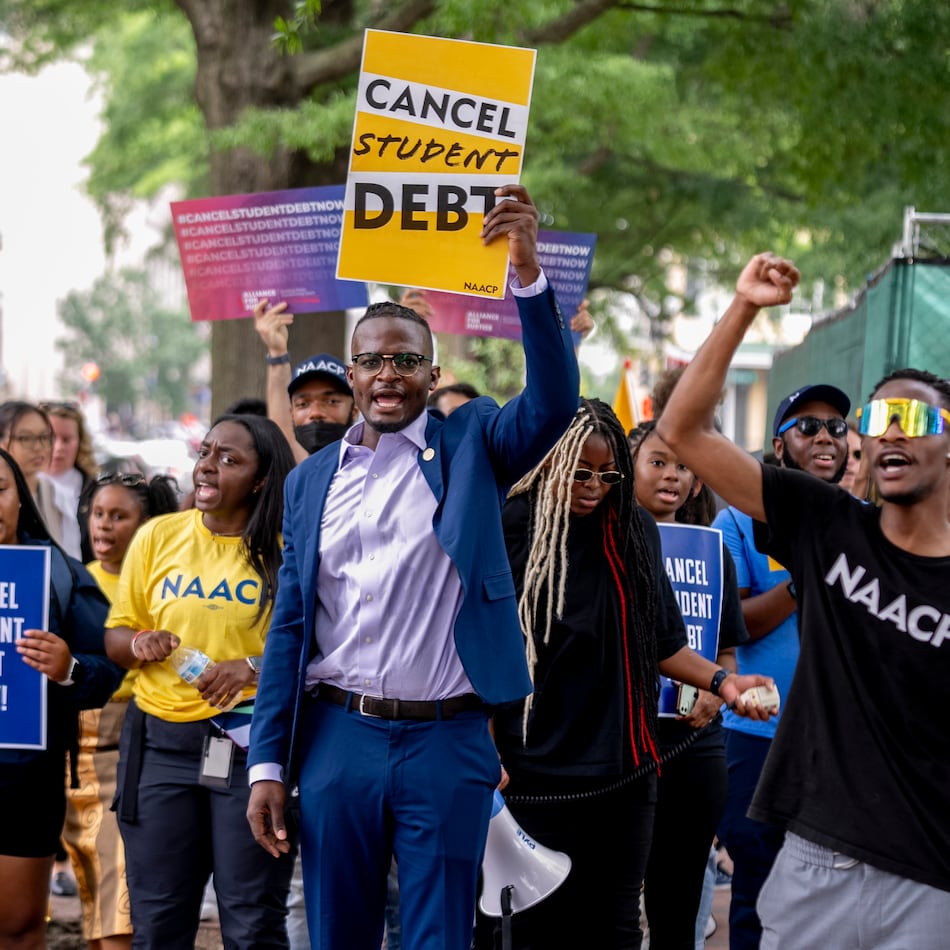A far-right Republican who waged a failed campaign for governor with the slogan “Jesus, Guns and Babies” and a promise to “stand up to the Luciferian Cabal” was elected this weekend to chair a key GOP district.
The ultra-conservative Georgia Republican Assembly won a spate of victories at party elections around the state. And several districts pressed policies that amplified pro-Donald Trump conspiracy theories involving the state’s 2020 results.
As more mainstream Republicans abandon the state GOP apparatus or are sidelined by its leaders, once-fringe activists are taking control of the party’s key functions. And the results of this weekend’s district-level GOP meetings put that trend on display.
One of the most vivid examples unfolded in southeast Georgia, where former gubernatorial candidate Kandiss Taylor was elected to chair the 1st District.
Taylor used her losing campaign last year to promote false conspiracy theories that state GOP leaders were secret Communists, Democrats were satanic pedophiles and Trump won the 2020 election.
She refused to concede her defeat despite capturing 3% of the vote, and promised to demolish a granite monument in northeast Georgia that was later partly destroyed by an explosive. (Taylor thanked God for “striking down” the attraction.)
After her election on Saturday, Taylor promised “big things” are on the way for the district.
“When they can’t cheat,” she said in a text message, “I win.“
Pro-Trump candidates scored major victories in other parts of the state, including the 6th and 11th Districts in suburban Atlanta. And in the 14th District, anti-abortion advocate Nathaniel Darnell – who recently maligned the late House Speaker David Ralston – was elected as treasurer after his opponent dropped out of the race.
Credit: Jason Getz/AJC
Credit: Jason Getz/AJC
In the 2nd District, which spans parts of southwest Georgia, a group of “independent conservatives who want honest Republicans elected” engineered a takeover, said Jeff Jolly, the Grady County GOP chair. He made clear the district’s focus in an interview.
“We don’t trust the voting system. We’re trying to go back to paper ballots,” said Jolly. “That’s going to be our top priority.”
Activists in the 11th District also considered a resolution that condemned Georgia’s election process as an “illegal, unverifiable voting system” and demanded a switch to hand-marked paper ballots.
The conspiracy theories have continued to proliferate despite clear evidence to the contrary. Three separate tallies of the roughly 5 million ballots upheld President Joe Biden’s narrow victory in 2020, court challenges by Trump allies were squashed, and state and federal election officials have vouched for the results. Gov. Brian Kemp is among party leaders who have implored fellow Republicans to focus on the future and not the “rearview mirror.“
But as the weekend’s developments underscored, Trump’s lies about a “rigged” election have seeped deeply into the Georgia GOP and left his critics marginalized. The GRA and its allies also scored key victories at county-level meetings earlier this year.
Credit: Nathan Posner for the AJC
Credit: Nathan Posner for the AJC
The friction is a prelude to the state GOP convention, where activists will gather in June to elect new party leaders and hone their vision of the party’s future. The party’s top leadership post is open after chair David Shafer, a potential target of prosecution by Fulton County investigators, said he won’t seek another term.
The organization is no longer a dominant force in Republican politics. Kemp and other officials have steadfastly avoided the state party, and a law he signed creating “leadership committees” that can raise unlimited funds enables him to circumvent the Georgia GOP and create his own infrastructure. Many rank-and-file elected officials and conservative advocates ignore the party altogether.
“The party apparatus is, unfortunately, an entity that continues to choose irrelevance,” said Cole Muzio of Frontline Policy Council, an influential conservative lobby. “Outside groups and individual campaigns have supplanted the GOP.”
But the state party still plays a role in mobilizing voters, marshaling activists and, most significantly, determining delegates for the presidential nomination. During the 2016 campaign, the state party became a battleground between warring factions backing Trump and Ted Cruz ahead of that year’s Republican National Convention – context not lost upon activists now.
“The grassroots showed how successful they can be when they organize and get involved,” said Debbie Dooley, an anti-establishment activist and early advocate of the tea party movement. “This convention cycle is a prelude to the fight coming next year.”
Some more mainstream Republicans, meanwhile, were buzzing about creating alternative groups to break away from the Georgia GOP – or abandoning the state party altogether.
Jason Shepherd is a former Cobb GOP chair who has been involved in the state party for three decades. But he’s now washed his hands of the organization.
“I don’t recognize the GOP anymore,” he said, “and I’ve decided it’s time to devote my energies to better purposes, like actually helping elect Republican candidates.”
Credit: Jim Galloway
Credit: Jim Galloway
About the Author
The Latest
Featured





